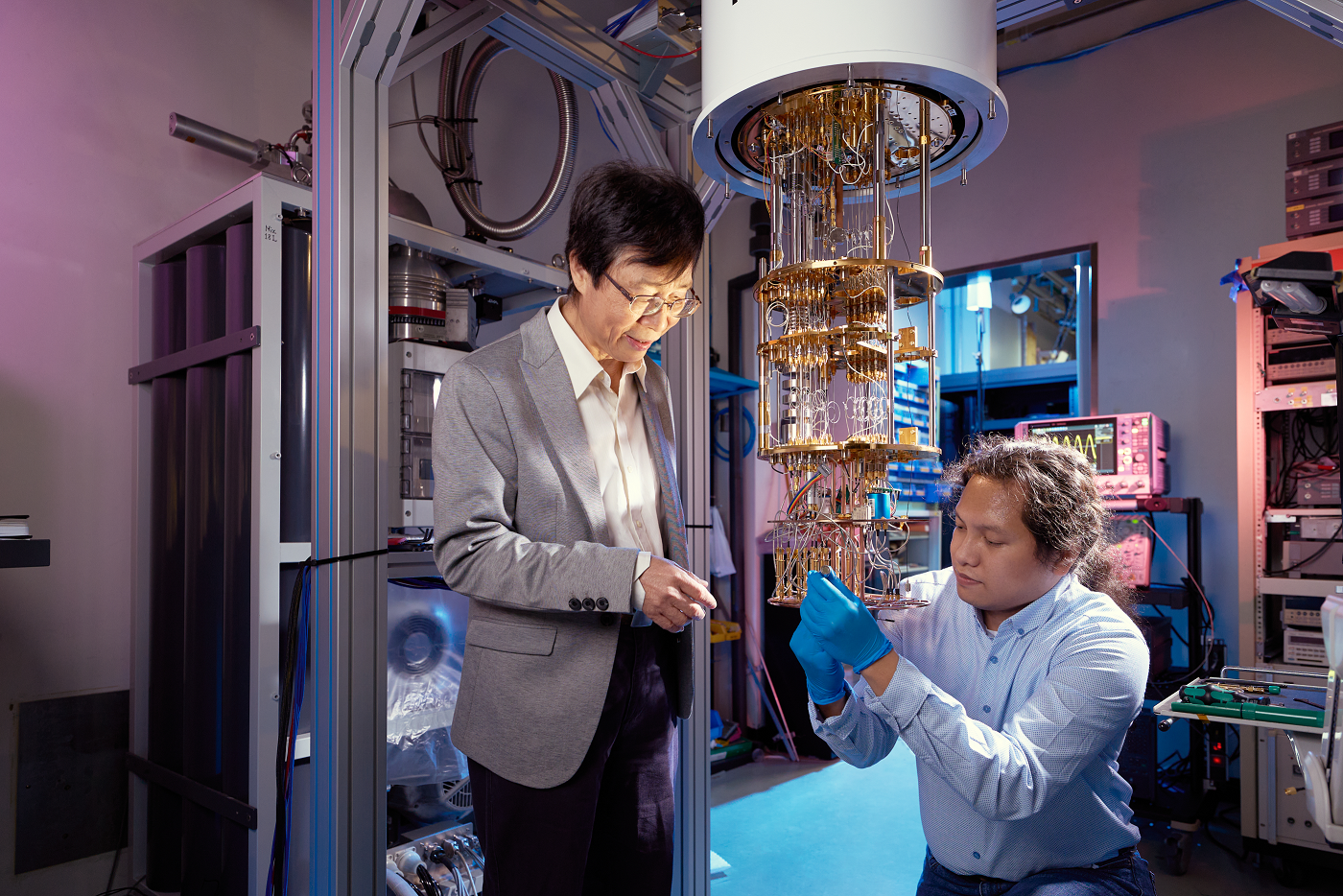In this article, you will learn:
- What is a 5-qubit superconducting quantum computer and why is it important
- How Taiwan achieved this breakthrough in quantum technology
- What are the benefits and applications of this quantum computer
- How this project showcases Taiwan’s scientific capabilities and potential
Introduction
Taiwan has recently launched its home-brewed 5-qubit superconducting quantum computer online, ahead of schedule. The project was led by Dr. Chii Dong Chen and funded by the National Science and Technology Council. The primary use of this quantum computer will be for research and testing by project collaborators. Additionally, it will serve as a platform for other research and development units, facilitating the development of extremely low-temperature CMOS and parametric amplifiers.
Background
Taiwan’s Quantum Leap: How Academia Sinica Built a 5-Qubit Quantum Computer in Record Time
In a recent announcement by Academia Sinica, Taiwan’s national research institute, of successfully fabricating, controlling, and measuring a 5-qubit quantum chip is a remarkable achievement. Not only did the institute manage to create a functional quantum device, but it also did so in record time. The project, which started in April 2021, originally aimed to develop a 3-qubit quantum computer by February 2024. However, the team surpassed expectations by achieving the 5-qubit milestone in October 2023, well ahead of schedule.

The five-qubit machine is part of a larger project that aims to develop a 20-qubit quantum computer by 2025, with the ultimate goal of reaching 100 qubits by 2030. The project is led by Professor Chao-Yang Lu, who is also a distinguished research fellow at Academia Sinica’s Institute of Physics. Lu said that the five-qubit machine is a crucial step towards building a scalable and reliable quantum computer that can tackle problems beyond the reach of classical computers.
Collaborative Efforts of Academia
The ASQ-5 project is a collaborative effort between several research groups and institutions in Taiwan.This project is supported by the Ministry of Science and Technology, which has allocated NT$1 billion (US$35 million) for the first phase of the project from 2019 to 2022. The project involves more than 100 researchers from Academia Sinica, National Taiwan University, National Tsing Hua University, National Cheng Kung University, National Chiao Tung University, and National Sun Yat-sen University.
Some of the collaborators include prestigious institutions such as the University of California, Santa Barbara, and the University of Wisconsin-Madison in the United States. Lu said that he hopes that the collaboration will foster more exchange and cooperation in quantum technology between Taiwan and the international community.
Technical Details
Taiwan has made a significant breakthrough in its quantum computing research with the successful operation of a five-qubit machine at Academia Sinica, the nation’s top research institute. It is capable of performing logic gates with a fidelity rate of 99.9%, meaning that the errors in quantum computations are very low. This is a remarkable achievement that demonstrates Taiwan’s expertise and innovation in quantum technology.
This quantum chip, named ASQ-5, is based on superconducting qubits that can store and manipulate quantum information. The qubits are connected by microwave resonators, which allow them to interact and entangle with each other. The chip is cooled to near absolute zero temperature, where quantum effects become dominant. The team used a combination of advanced fabrication techniques, such as electron beam lithography and reactive ion etching, to create the chip with high precision and quality.
The team also developed a sophisticated control and measurement system for the chip, which consists of microwave sources, amplifiers, filters, mixers, and digitizers. The system can generate and apply microwave pulses to the chip to perform various quantum operations and algorithms. The team demonstrated the functionality of the chip by running several benchmark tests, such as state tomography, process tomography, randomized benchmarking, and quantum volume measurement. The results showed that the chip has high fidelity and coherence times, which are essential for reliable quantum computation.
One of the advantages of Taiwan’s quantum computing project is that it leverages the nation’s strength in semiconductor manufacturing and chip design. The five-qubit machine uses ultra-low temperature complementary metal-oxide-semiconductor (CMOS) technology and parametric amplifiers, which are key components for controlling and measuring qubits. These technologies are also compatible with existing semiconductor fabrication processes, which could lower the cost and increase the scalability of quantum computers.
Future Prospects of this Quantum Computer
As quantum computing technology continues to advance, it is expected to have a significant impact on various industries, including finance, healthcare, and logistics. As Taiwan’s quantum computing project progresses, it is expected to drive further research and industry development in quantum technology, attracting talent from both domestic and international spheres.
Recommended Books for Quantum Computing:
1.Quantum Computing For Everyone
2. Quantum Computing: An Applied Approach
Discover more from WireUnwired Research
Subscribe to get the latest posts sent to your email.




